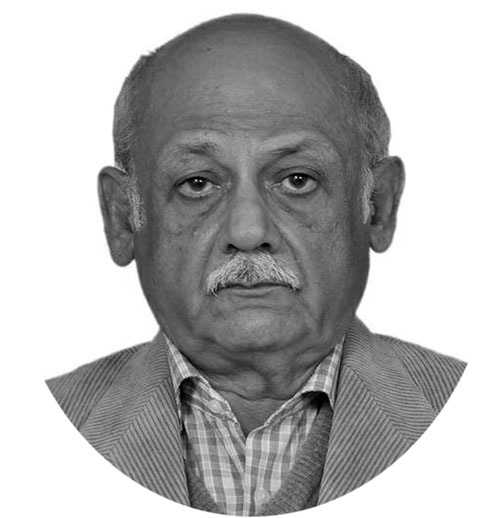Zulfikar Bhutto’s tryst with destiny
2:00 AM, 4th April 1979, Central Jail Rawalpindi. Zulfikar Ali Bhutto, first elected Prime Minister, former President and former Foreign Minister of Pakistan, was informed by his jailers “It’s time”.
He was removed from the death cell and taken to the gallows or “Phansi Ghar” for execution.
The word had leaked out among the inmates of the jail and the melancholy quiet of the night was now punctuated with recitation from the Holy Quran.
Head held high, in proud defiance, Bhutto walked the short distance to his place of execution, his tryst with destiny and the final act in his turbulent chaotic and historical career.
The trial of Zulfikar Ali Bhutto and five other defendants commenced on the 11 October 1977 in the Lahore High Court before the following five judges (i) Maulvi Mushtaq Hussein, Chief Justice (ii) Jakiud Din Pal, Judge (iii) MSM Qureshi, judge (iv) Aftab Hussein, judge (v) Gulbaz Khan.
The public prosecutor was Ejaz Hussein Battalvi and Bhutto was defended for part of the proceedings by D.M.Awan, Ehsan Qadir Shah, and Enayatullah.
Zia’s mind was already made up, he was determined to kill Bhutto at all costs.
This is evident from the interview he gave on the 6th of September 1977 in which he confirmed that he had personally ordered the arrest of Zulfikar Ali Bhutto and added “Mr. Bhutto was a Machiavelli in 1977.
An evil genius running the country on more or less Gestapo lines, misusing funds, blackmailing people, detaining them and even perhaps ordering people to be killed.”
The Learned judges of the Lahore High Court pronounced their historic but unfortunate judgment on the 18th of March 1978.
Bhutto was found guilty and sentenced to death. This unanimous decision stated that the prosecution had proved their case “to the hilt” and that Zulfikar Ali Bhutto was a “Compulsive Liar”.
To add fuel to the fire, Zia had stated in an interview to the Urdu Digest on the 15th of September 1977 that Bhutto is a cheat and a murderer and he will not be able to escape the severest punishment on the basis of the evidence already available.
Just before the beginning of the trial the constitution of the court had been challenged by Bhutto on the grounds of appointment of Maulvi Mushtaq Hussein as the Chief Election Commissioner by the Zia regime.
Bhutto’s appeal and rejoinder to the press alleged partisanship against justice Maulvi Mushtaq Hussein and labeled it a travesty of justice in combining the office of the Chief Election Commissioner and Chief Justice of the High Court.
Mr. Bhutto also pointed out the visible bias and vindictive nature of Maulvi Mushtaq by bringing to light the fact that Maulvi Mushtaq on the retirement of Justice Iqbal had been superseded during Bhutto’s rule although he was the senior most judge of the Lahore High Court and since that day he had nurtured a grudge against the former Prime Minister.
After being sentenced to death by the Lahore High Court, Zulfikar Ali Bhutto appealed to the Supreme Court of Pakistan on the 25th of March 1978.
ZAB appealed to the Chief Justice to withdraw from the case as he had publicly criticized Bhutto and his Government and had even referred to Zia-ul-Haque as a “National Saviour” and had also acted as Head of State during Zia’s absence from the country.
This appeal was rejected by Anwar-ul-Haque as being “unfounded and based on a misunderstanding”.
The CJ announced that he was going to nominate a full bench of 9 judges and his view will be only one view of the nine judges. Hearings of the appeal continued from the 20th of May 1978 to 23 December 1978.
Judgment was delivered on the 6th of February 1979. It was a split decision of 4:3 that finally sealed the fate of the charismatic former Prime Minister of Pakistan.
During the course of the trial in the Supreme Court fate played a trick on ZAB not once but twice.
The number of Judges hearing the appeal was reduced to seven from nine. Justice Qaiser Khan retired on 30.7.78 and Justice Wahid-ud-Din stepped down after suffering a stroke on the 20 November 1978.
Justice Mohammad Akram, Justice Karam Elahi Chohan and Justice Nasim Hassan Shah agreed with the decision of the Chief Justice and the three other judges who allowed the appeal of Bhutto and the other accused Mian Abbas were Justice Dorab Patel, Justice Haleem Sidiqui and Justice Safdar Shah.
Ironically, another paradox of this historic case is that all the four judges who upheld the death sentence belonged to the Punjab province.
The Chief Justice was a part of the “Jullundari Junta that ruled Pakistan and a member of the all powerful Arain Biradri of Zia-ul-Haque.
Three judges who disagreed with the Chief Justice all belonged to the smaller provinces of Pakistan.
—The writer is Professor of History.










